“I like questions more when it comes to creating a character, rather than finding the answers”: Albrecht Schuch on Peacock at Venice Film Festival 2024
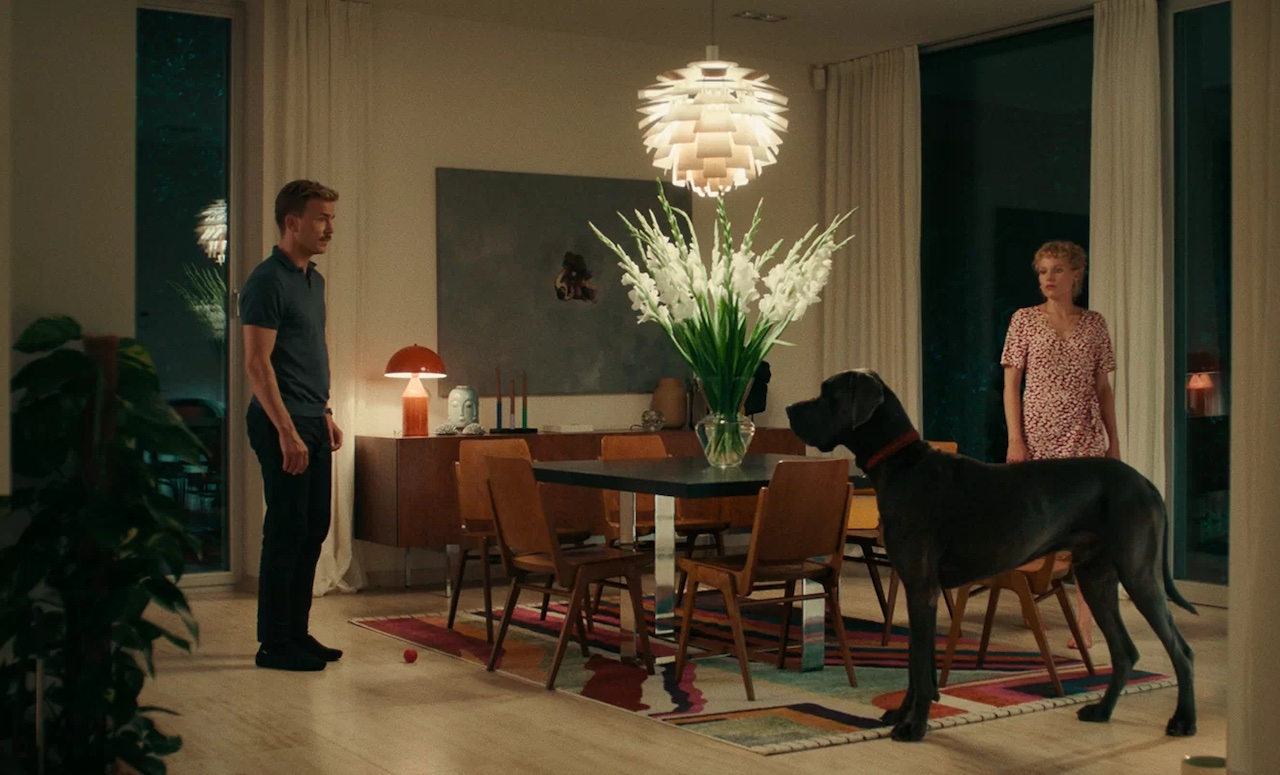
As with any big festival, smaller parallel sections, tucked away from the glitzy main competition, often hold particularly sweet surprises in store. One of these hidden gems at the Venice Film Festival was Peacock, an Austrian debut screening in the Critics’ Week. The face of the feature is no stranger to cineastes: Albrecht Schuch, who recently made waves internationally with All Quiet on the Western Front and previously enthralled festival audiences in Berlin Alexanderplatz or System Crasher.
In Peacock, Schuch stars as Matthias, who initially has more in common with a chameleon than the titular bird. As the lead operator of a rent-a-friend agency based in Vienna, he is completely pliable in whatever role his clients cast him in. This versatility and adaptability, however, has caused him to lose sight of his own identity.
The Upcoming spoke to the German actor about the challenges of playing a character without a definition of self and – somewhat fitting for the scenario of this interview – how personalities shift when we communicate in a different language.
How did you come across this project? How were you approached for this role, which is rather different from your previous work?
I’d say I was approached the most regular way possible: my agent called me and sent me the script. I read it, and one of my first thoughts was that I want to see that movie! Because that script really hit my personal taste very well. What I mean by that is, it had a little bit of a Scandinavian flavour, Ruben Östlund-ish, but also something of Yorgos Lanthimos, who is one of my favourite directors. Plus, on top there was this… let’s call it Bernhard’s Austrian humour: subtle humour, dark humour, that I very much appreciate watching. So, in a way I was struggling with the question that therefore, I shouldn’t go to the casting, because I won’t be able to see the movie, because it’s a different thing, right? But yeah, I thought it was a challenge, because I didn’t [ever] play a character of such kind. I always use the term that I understand my profession as being an emotional juggler, like juggling with emotions. And here we are with the first problem, because there’s Matthias struggling with finding a connection [with] his own emotions, feelings, and I didn’t know how to to get there, to that certain state. I realised I couldn’t even name it. What does it mean to have no feelings, or feelings you are disconnected from, feelings that are in a numb state? What does it mean if you lack character or personality?
How did you overcome this struggle?
Bernhard Wenger, the director, and me, we realised, we have to find a certain vocabulary that we both understand to get closer and to corner that very state. Through a variety of metaphors or situations to get through to that point, to get to me understanding how to, in the end, play it right. One of the key points was Happy as Lazzaro, for example. Lazzaro Felice is the original title, an Italian movie by Alice Rohrwacher, which is one of my favourite movies. It doesn’t have much to do with our movie, but the character, Lazzaro, has a certain openness and sheer curiosity about living in the world without problems. A little bit like a child, so playful, open and not judging. And I thought, yeah, that could work. Then, I had those images of an echo within the brain of Matthias. There is information coming in and he’s calculating, “I don’t need any problems here. Don’t need any problems, just follow the client’s order. Just make him or her happy, as best as possible.” So step by step, we ended up with what you see on the projection screen.
I’m very curious about your character’s way of speaking with an Austrian intonation. It’s not quite a dialect, but you adapt to the melody of the Austrian way of speaking, in certain scenes. What was the decision-making process behind this?
Well, we decided that Matthias is German and lives in Austria, has been for quite a while. So in certain moments, you could hear a certain intonation, as you say, but not a heavy accent. I went for the typical Viennese accent first. And from there, we reduced it, more and more. That was the process, actually.
In the scenes with Ina (played by Theresa Frostad Eggesbø), when he has to speak English, there’s another switch. I presume it’s meant for us to come as close to the real Matthias as possible, the way he is with her. But there is research that suggests that people adopt different personalities when they speak different languages. Is that something that you think your character goes through, or perhaps even notice in yourself?
I wouldn’t say different personalities, as much as different layers of your personality. Different angles of your personalities are kind of revealed or shown, because we are all multi-layered, and we are all able, fluently and subconsciously, to adapt, when we move from one city to another. We adapt to the language, adapt to the words, and it has a certain – different accents lead to a different body language, for example, and lead to a different way of breathing and so on, and therefore it’s echoing another us and transporting it through our tongue. When I’m in the North of Germany, I feel way more laid back, because of the words there that I hear or that I speak, because I like language, and therefore I use some of those words. So yeah, it’s not a different personality, I’d say, but yes, definitely a different part of us.
The final film leaves some questions open about Matthias. As an actor, do you still have questions about your character? Or do you have all the answers in your head, and the audience just isn’t privy to that?
Absolutely not. I think it would be a very empty experience for everyone watching the movie if I teach them about the character… if that makes sense, right? No, not at all. I know some parts of the character, or I think that I know some parts of the character. I made some decisions. But I mean, how could I fully understand the character, if I’m not able to fully understand myself? I mean, that would be like speaking about someone, but not of someone. I always try to maintain that it’s an eye-to-eye situation. That also includes asking myself the questions – even though it might be painful from time to time – what are the similarities here between the character and me, and what differentiates me? Where are the comparisons, and where am I different? So, it’s questions. I like questions more when it comes to creating a character, rather than finding the answers. But of course, I do have to decide, and there are so many possible decisions… with Matthias, it was different. It was more open. I think the question mark was hanging over every scene for me, and it was a good way to have that as an inner kind of emotional state: a big question mark, what will happen next?
Peacock is Bernhard Wenger’s first feature. Your filmography shows you work quite a lot with people who are just getting into the business. Is that a deliberate decision?
It is a very freeing thing to do, I’d say. Of course, it is also hard work, because first time filmmakers are not that experienced sometimes, in terms of the process on set. But in terms of vision, they are way ahead than 95% of their colleagues, of their so-called “more experienced” colleagues, right? I think they’re not stuck in the business, so to say. It’s not easy to to maintain that visionary kind of movie making. Because you find yourself in a reality of how to finance a movie and numbers and so many people talking more and more about your vision, who then override your vision in the worst-case scenario, and then you get disillusioned. I really like that vision and I like to be part of it.
Sigourney Weaver did a Masterclass here a couple days ago and she said first-time directors are much more open to collaboration with their actors, is that something you would also agree on?
Well, this was a very waterproof and very neat script – the infrastructure was so precise that there was not that much space, for example, for improvisation. That went hand in hand with the actual core of the movie, which is a bit static, a bit cold, a bit brutalistic, so to say, in its in its architectural approach.
Selina Sondermann
Read more reviews from our Venice Film Festival coverage here.
For further information about the event visit the Venice Film Festival website here.










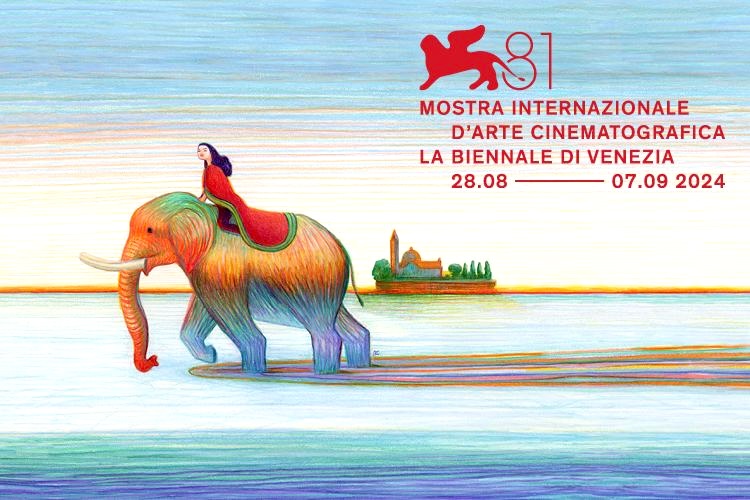
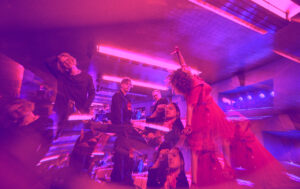

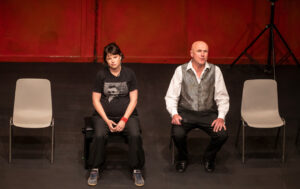

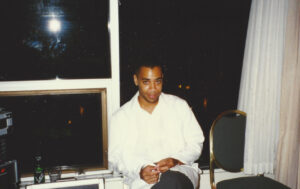
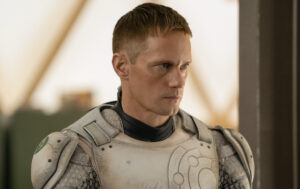


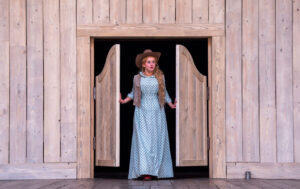





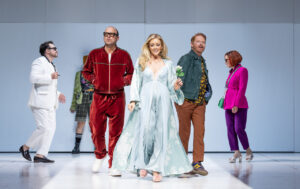
Facebook
Twitter
Instagram
YouTube
RSS